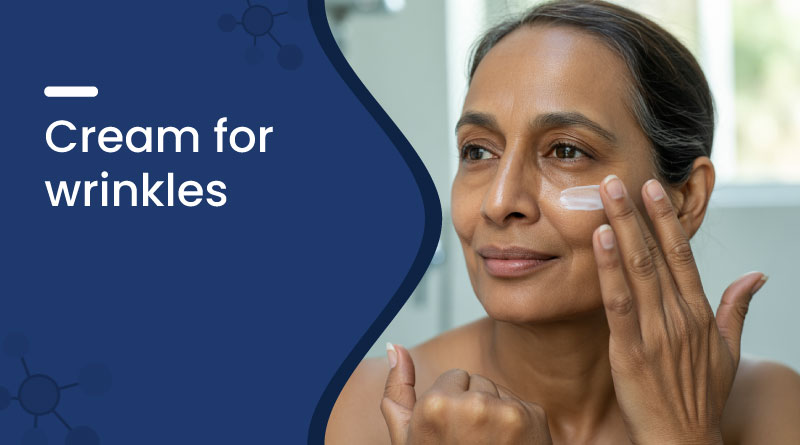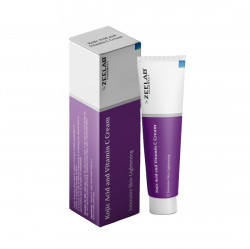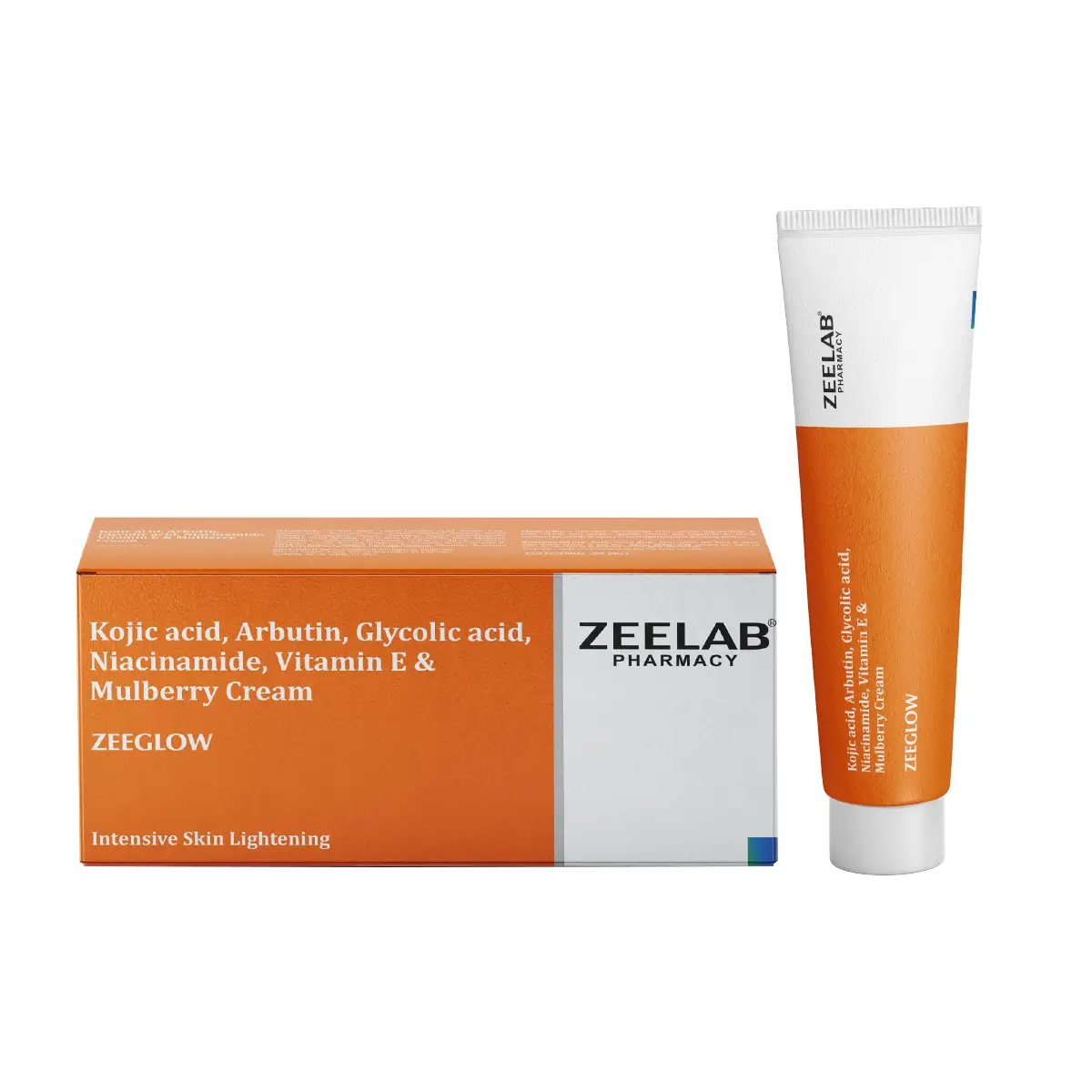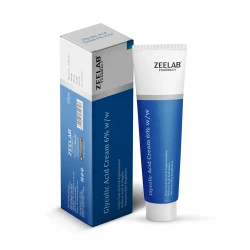Best Cream for Wrinkles | Reduce Fine Lines & Anti-Aging Skin Care


Cream for wrinkles helps reduce fine lines, dryness, and sagging by delivering deep hydration and boosting skin elasticity. These creams often include retinoids to support cell renewal, peptides to enhance firmness, hyaluronic acid for moisture, and antioxidants like vitamin C to protect against free radical damage. Regular use improves skin texture and restores a youthful glow. For effective results, applying consistently and consulting a dermatologist ensures the best routine tailored to your skin’s needs, promoting healthy, smooth, and radiant skin.
Why is it necessary to use cream for wrinkles?
Cream for wrinkles is vital for preventing premature aging and reducing visible fine lines. They nourish and protect skin against sun damage, dehydration, and environmental stressors. Active ingredients such as retinol and peptides stimulate collagen renewal, while hyaluronic acid maintains deep hydration. Using the right cream helps skin stay firm, smooth, and youthful for longer.
Benefits of Cream for Wrinkles
- Moisturizes Skin: Deeply hydrates dry skin, enhancing softness and elasticity. Proper moisturizing plumps the skin, visibly reducing fine lines and preventing premature aging caused by dryness and environmental stressors, leading to healthier skin.
- Reduces Fine Lines: Stimulate collagen, smoothing fine lines over time. Consistent application diminishes visible wrinkles and promotes firmer, youthful-looking skin by boosting cell turnover and enhancing skin structure.
- Boosts Collagen Production: Anti-aging creams encourage natural collagen synthesis, enhancing the skin's internal structure. Increased collagen improves skin elasticity, effectively reducing sagging and helping restore a noticeably firmer and more youthful appearance to the face.
- Protects Skin Damage: Fight damage caused by oxidative stress, sun exposure, and pollution. This crucial protection slows the visible effects of aging, reduces the formation of wrinkles, and helps maintain a healthier, radiant skin tone.
- Improves Skin Texture: Smoothens rough or uneven surfaces, minimizing bumps, dryness, and dullness. Improved texture gives the skin a softer, more refined, and polished appearance, contributing to a consistently healthier and younger look with regular use.
- Brightens Skin Tone: Lighten dark spots and discoloration. This action effectively evens out the overall skin tone, reduces dullness, and enhances natural radiance for a healthy, glowing, and visibly youthful complexion.
- Prevents Premature Aging: Nourishes the skin and forms a protective barrier. By strengthening skin resilience against UV damage, stress, and environmental factors, the cream effectively prevents the early onset of visible aging signs.
How does cream for wrinkles work?
Cream for wrinkles works by penetrating the skin barrier with active anti-aging compounds. Retinoids accelerate cell renewal, peptides stimulate collagen, and antioxidants protect against oxidative stress. Meanwhile, humectants like hyaluronic acid deeply hydrate and plump skin. Together, these mechanisms reduce fine lines, restore elasticity, and create a smoother, younger appearance.
Why Do Wrinkles Occur?
Wrinkles occur as skin loses collagen, elastin, and hydration with age. External factors such as sun exposure, smoking, stress, poor diet, and pollution accelerate this breakdown. Facial expressions, sleep positions, and genetic predispositions also contribute. Over time, skin becomes thinner, drier, and less elastic, leading to visible fine lines and deeper folds.
Types of Wrinkles
Wrinkles are categorized by cause and depth:
- Dynamic Wrinkles: Form from repeated facial expressions.
- Static Wrinkles: Visible even when the face rests.
- Fine Lines: Early shallow wrinkles from aging.
- Deep Wrinkles: Noticeable, pronounced lines on skin.
- Gravitational Wrinkles: Caused by sagging skin downward.
How to Make Skin Look Youthful Again?
To restore youthful skin, use anti-wrinkle creams with retinoids, peptides, and hyaluronic acid daily. Protect skin with sunscreen, stay hydrated, and follow a balanced diet rich in antioxidants. Gentle exfoliation improves cell turnover, while adequate sleep and stress management enhance skin repair. Professional treatments like chemical peels, microneedling, or laser therapy may also support wrinkle reduction.
How to Reduce Wrinkles Quickly?
Quick wrinkle reduction involves a mix of good skincare and lifestyle changes. Start with a retinol-based cream, hydrating serums with hyaluronic acid, and sunscreen. Apply antioxidant-rich creams to fight free radicals. Stay hydrated, avoid smoking, and reduce sun exposure. For faster results, dermatological treatments such as Botox or fillers can smooth deep lines effectively.
How long will it take for a cream to reduce my wrinkles?
Cream for wrinkles can gradually improve skin texture and firmness. Results vary depending on ingredients, skin type, and consistency of use. Typically, noticeable improvement may take several weeks to a few months of regular application.
Is Cream for wrinkles really effective?
Creams for wrinkles can help hydrate skin, improve texture, and reduce fine lines temporarily, especially those with retinoids, peptides, or antioxidants. However, they cannot fully reverse deep wrinkles, which often require professional treatments for significant results.
List of Cream for Wrinkles in India
|
Cream Name |
Benefits |
|
Lighten pigmentation, boost collagen, and hydrate skin. They reduce wrinkles, fine lines, and dark spots, promoting smoother, youthful-looking skin. |
|
|
Exfoliates the skin, removing dead cells and promoting collagen production. Regular use can improve skin texture, reduce fine lines, and help soften early wrinkles over time. |
|
|
Reduce wrinkles by promoting collagen production, brightening skin, and fading dark spots, resulting in smoother, firmer, and more youthful-looking skin over time |
Side Effects of Cream for Wrinkles
Mild irritation, redness, peeling, or dryness may occur, especially with retinol-based creams. These effects usually improve as your skin adjusts. Always apply sunscreen, as retinoids increase sun sensitivity.
Lifestyle Tips for Reducing Wrinkles Faster
- Always use sunscreen to prevent photoaging.
- Stay hydrated to keep skin plump.
- Eat antioxidant-rich foods like berries and nuts.
- Sleep 7–8 hours daily to allow skin repair.
- Quit smoking and limit alcohol to protect collagen.
- Use gentle cleansers and avoid harsh scrubs.
When to See a Doctor?
Consult a dermatologist if:
- Wrinkles appear prematurely at a young age.
- Wrinkle creams cause severe irritation or an allergy.
- You notice sudden, deep wrinkles due to medical conditions.
- You want effective and safe treatments.
What to Avoid?
- Avoid over-exfoliating: it can thin the skin barrier.
- Do not skip sunscreen: UV rays worsen wrinkles.
- Avoid harsh soaps/chemicals: They strip natural oils.
- Don’t smoke: It accelerates collagen breakdown.
Conclusion
Cream for wrinkles plays a crucial role in reducing fine lines, improving elasticity, and preventing premature aging. With ingredients like retinol, peptides, and hyaluronic acid, these creams restore hydration, stimulate collagen, and protect from environmental damage. Combined with healthy lifestyle choices and sun protection, they promote smoother, firmer, and more youthful-looking skin.
Frequently Asked Questions
Q: What is cream for wrinkles used for?
A: Cream for wrinkles targets signs of aging such as fine lines, crow’s feet, and sagging. They hydrate, boost collagen, and improve elasticity to restore a youthful appearance. Ingredients like retinoids, peptides, and antioxidants work together to smooth skin, prevent further damage, and delay visible aging when used consistently.
Q: How does cream for wrinkles work?
A: Wrinkle creams combine retinoids for cell turnover, peptides for collagen stimulation, and antioxidants to fight free radicals. Humectants like hyaluronic acid hydrate deeply, plumping skin and smoothing fine lines. This synergy reduces wrinkles, improves texture, and protects against aging triggers such as sun exposure and pollution, making skin firmer and healthier.
Q: Can cream for wrinkles prevent aging?
A: While creams cannot stop aging, they slow it significantly. By promoting collagen, improving hydration, and shielding against UV damage, they delay fine lines and sagging. Consistent use of sun protection prevents premature wrinkles. Though aging is natural, creams ensure smoother, more youthful skin for longer.
Q: How soon should I start using cream for wrinkles?
A: Dermatologists recommend starting wrinkle creams in your mid-to-late 20s or early 30s as a preventive step. Early use of retinol, peptides, and antioxidants helps maintain collagen and elasticity. The sooner you begin, the better your skin resists future wrinkles, especially when paired with sunscreen and a healthy lifestyle.
Q: Are creams for wrinkles safe for sensitive skin?
A: Many wrinkle creams are suitable for sensitive skin, especially those with gentle formulations containing peptides or hyaluronic acid. However, retinol may irritate initially. Always start with lower concentrations, perform a patch test, and choose hypoallergenic options. Consulting a dermatologist ensures the safest choice for sensitive or reactive skin.
Q: How long does it take for the cream for wrinkles to show results?
A: Visible improvements often appear within 4–6 weeks, but optimal results usually require consistent use for 3–6 months. Hydration benefits are immediate, but wrinkle reduction from collagen stimulation takes longer. With regular application, skin becomes firmer, smoother, and younger-looking over time. Patience and consistency are key.
Q: Can Cream for Wrinkles be used around the eyes?
A: Yes, but only formulas designed for delicate eye skin should be applied. Eye wrinkle creams contain lower-strength retinol, peptides, and hydrating agents that reduce crow’s feet without irritation. Regular facial creams may be too strong for this area. Always use gentle, ophthalmologist-tested options for best results.
Q: Do creams for wrinkles require a prescription?
A: Most wrinkle creams are available OTC, including those with retinol, peptides, and antioxidants. However, prescription-strength retinoids such as tretinoin or adapalene are available only with a dermatologist’s prescription. The choice depends on the severity of wrinkles and skin tolerance. A doctor can guide you on which is best for your needs.
Q: What are the common side effects of wrinkle creams?
A: Common side effects include redness, dryness, peeling, or mild irritation, especially with retinol-based products. These symptoms usually subside as skin adapts. To minimize discomfort, start with alternate-day use, follow with moisturizer, and apply sunscreen daily. If irritation persists, consult a dermatologist for gentler alternatives or lower-strength formulas.
Kojic Acid 2% + Vitamin C
20gm In 1 tube
Kojic Acid + Arbutin + Glycolic Acid + Niacinamide + Vitamin E + Mulberry
25gm in 1 bottle
Glycolic Acid 6%
30gm in 1 tube
Recent Blogs
Disclaimer : Zeelab Pharmacy provides health information for knowledge only. Do not self-medicate. Always consult a qualified doctor before starting, stopping, or changing any medicine or treatment.



















 Added!
Added!